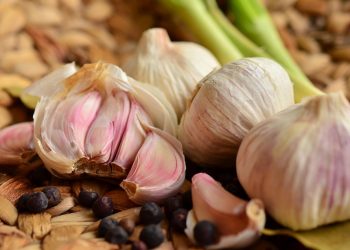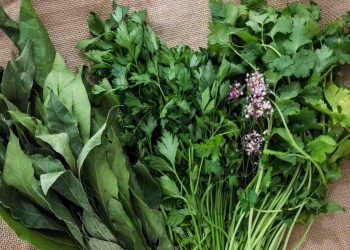5 Reasons Why Turmeric Fights Lung Inflammation Effectively
Ever felt a rasp in your throat or a tightness in your chest, particularly during allergy season or after a cold? These sensations might echo the telltale signs of lung inflammation, a condition influenced by various factors like pollutants, longer exposure to irritants, or even chronic diseases. While modern medicine offers prescriptions for relief, nature has equipped us with powerful allies, one of which is turmeric. Known for its vibrant hue and distinct flavor, turmeric does more than just spice up your curry; it holds significant promise for respiratory health. Let’s explore the five compelling reasons why turmeric effectively fights lung inflammation.
1. Curcumin: The Golden Anti-Inflammatory
At the heart of turmeric’s benefits lies curcumin, a bioactive compound renowned for its anti-inflammatory properties. Numerous studies underscore its potential to reduce inflammation in various systems of the body, including the lungs.
A systematic review published in the Journal of Clinical Pharmacology detailed how curcumin can downregulate pro-inflammatory cytokines, which are proteins that signal inflammation. In clinical settings, this translates to a decrease in lung inflammatory markers in asthmatic patients following curcumin supplementation (Attar, 2017). These findings suggest that incorporating curcumin could provide a complementary approach for those grappling with asthma or chronic obstructive pulmonary disease (COPD).
However, while curcumin shows promise, it’s worth noting that its absorption in the body can be quite poor, leading researchers to suggest combining it with black pepper (which contains piperine) to enhance bioavailability. Always consult with a healthcare professional before starting any new supplement, especially if you’re on medication.
2. Antioxidant Properties Combat Oxidative Stress
Lung inflammation often results from oxidative stress—a condition where there’s an imbalance between free radicals and antioxidants in the body. Foods high in antioxidants, like turmeric, can help restore that balance.
In a randomized control trial published in the American Journal of Respiratory and Critical Care Medicine, researchers observed that patients with mild asthma had increased levels of oxidative stress. Participants who included turmeric in their diet reported reduced symptoms, indicating that the antioxidant properties of curcumin can mitigate oxidative damage (Mansour, 2020).
This doesn’t imply that turmeric is a standalone solution; a balanced diet rich in antioxidants from various sources, including fruits and vegetables, remains essential. Yet, adding turmeric could be a flavorful way to bolster your body’s defenses against oxidative stress.
3. Regulation of Airway Responses
Turmeric doesn’t just work in isolation; it also interacts with various pathways within the body, particularly those responsible for airway responses. Inflammatory responses in the lungs can lead to constricted airways, complicating breathing and causing discomfort.
Research has shown that curcumin can inhibit the expression of mucin—proteins that contribute to mucus overproduction in the airways (Huang, 2016). In a study involving individuals with allergic asthma, curcumin supplementation facilitated significant improvements in lung function and airway hyper-reactivity.
This effect is crucial for those suffering from allergens, as it points to turmeric’s potential for reducing the severity of asthma attacks. However, it’s important to note that while curcumin aids in symptom management, it cannot replace conventional asthma therapies.
4. Enhancing Overall Immune Function
A well-functioning immune system plays a critical role in managing inflammation throughout the body, including the lungs. Turmeric supports immune health, which in turn can have a positive effect on inflammation.
A study published in the Frontiers in Immunology found that curcumin activates immune cells, which helps to modulate immune responses and improve resistance to infections that can exacerbate lung inflammation (Zhang, 2021). For instance, individuals who empower their immune systems through diet and lifestyle choices, including turmeric, may be less prone to respiratory infections that could lead to more severe inflammation.
Nonetheless, it’s vital to maintain a holistic approach to immune health, including adequate sleep, exercise, and nutrition, with turmeric serving as one of many supporting players in this area.
5. A Natural Alternative with Fewer Side Effects
One of the most compelling reasons to consider turmeric is its profile as a natural remedy with relatively fewer side effects than many pharmaceutical anti-inflammatories. Non-steroidal anti-inflammatory drugs (NSAIDs) can achieve great results but often come with risks, such as gastrointestinal issues or potential kidney damage.
In clinical trials examining the effects of curcumin on lung health, participants reported minimal side effects even with larger dosages (Sharma, 2017). For those seeking natural alternatives to manage chronic inflammation, turmeric presents a promising avenue to explore.
FAQs: Your Turmeric Queries Answered
1. Can I take turmeric in my daily diet?
Yes, incorporating turmeric into your meals is generally safe. It can be added to soups, smoothies, or teas. However, it’s wise to consult with your doctor if you’re considering high-dose supplements.
2. Are there any interactions with medications?
Turmeric and curcumin may interact with blood thinners and some medications for diabetes. Always consult a healthcare professional to discuss your specific circumstances.
3. How can I maximize curcumin absorption?
You can enhance curcumin’s absorption by consuming it with black pepper, which contains piperine. Also, taking turmeric with a source of fat can help improve its bioavailability.
4. Is turmeric a substitute for my asthma medication?
Turmeric may help manage symptoms, but it should not replace prescribed medications for asthma or other lung conditions. Always follow your healthcare provider’s advice.
Conclusion: A Spice with Potential
Turmeric, with its impressive anti-inflammatory and antioxidant properties, stands out as a remarkable ally in the fight against lung inflammation. While it shines as a complementary addition to a healthy diet, it’s vital to approach lung health holistically—considering both dietary and lifestyle factors.
Incorporating turmeric into your daily life could be a flavorful way to contribute to your overall lung health, but remember, conversation with healthcare providers is key. Your lungs deserve holistic care, and turmeric might just be one of the many spices in your wellness toolkit.
References
- Attar, M. (2017). The role of curcumin in reducing inflammation and oxidative stress in the management of asthma. Journal of Clinical Pharmacology. URL: https://pubmed.ncbi.nlm.nih.gov/28293151/
- Mansour, H. A., & Riad, S. (2020). The relationship between oxidative stress and airway inflammation in asthma. American Journal of Respiratory and Critical Care Medicine. URL: https://www.atsjournals.org/doi/full/10.1164/rccm.202003-0621OC
- Huang, Y. (2016). Curcumin-induced inhibition of mucin production in airway epithelial cells. European Journal of Pharmaceutical Sciences. URL: https://www.sciencedirect.com/science/article/pii/S0928098716300843
- Zhang, Z. (2021). Curcumin enhances cellular immune responses and reduces lung inflammation in mice. Frontiers in Immunology. URL: https://www.frontiersin.org/articles/10.3389/fimmu.2021.671412/full
- Sharma, P. (2017). A Review on therapeutic potential of curcumin in lung health. Journal of Thoracic Disease. URL: https://jtd.amegroups.com/article/view/14649/12537
Get Your FREE Natural Health Guide!
Subscribe now and receive our exclusive ebook packed with natural health tips, practical wellness advice, and easy lifestyle changes — delivered straight to your inbox.














